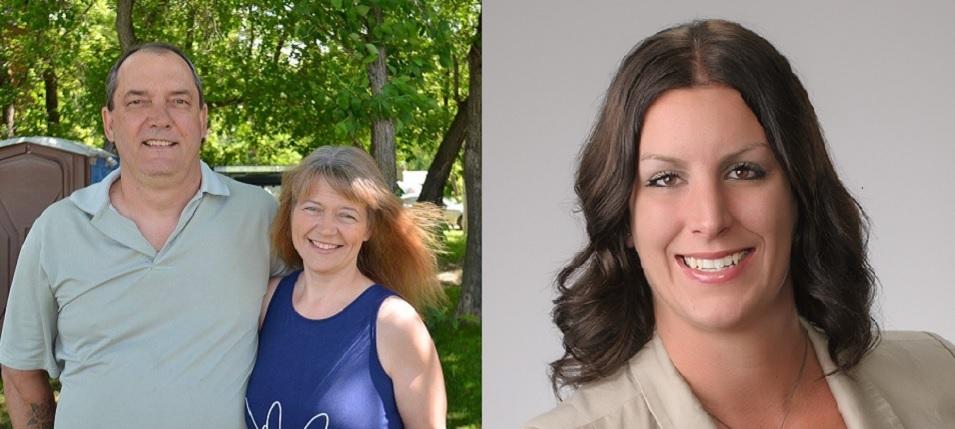When you choose to become an entrepreneur, you understand that there will be risks. But if you advertise effectively, treat your customers right, and practice sound accounting, many of those risks can be mitigated.
What do you do then when faced with forced closures or heavy restrictions no one could have reasonably prepared for? That’s the questions many small business owners in the region are still trying to figure out.
Ian Pfeiffer
Ian Pfeiffer and his wife Kim, from St. Adolphe, own Diamond Edge Dog Salon located on Pembina Highway in Winnipeg. The business has been in operation since 1999 and the couple pride themselves on providing a personalized customer experience that comes from a mom-and-pop-style shop.
When non-essential services closed two months ago, the Pfeiffers found themselves on that list despite the fact that many of their competitors were not. What set them apart from other pet-grooming shops was the fact that they didn’t provide services like boarding kennels or pet daycare.
Pfeiffer saw some irony in this. While people were working from home and self-isolating, the need for daycares and kennels should have been significantly reduced, making it less essential than grooming—not more.
“Many of our customers were driven to our competitors,” Pfeiffer says. “This time of year is equivalent to our Christmas. It [makes up for] our slower periods [that were] January and February.”
He adds that he saw a staff person from another grooming company, one that remained open, openly apologize on social media for unintentionally “stealing” customers from smaller groomers who had been forced to close.
When other provinces began reversing their decisions regarding grooming services, the Manitoba government held firm. Pfeiffer reached out to every level of government for a listening ear.
Even on Engage MB, a provincial government website designed for small businesses to share their views on the government’s decision-making processes, Pfeiffer says he got sterile responses to his pleas.
“My understanding was that they were there to provide information to help us work through any issues we were having as businesses,” says Pfeiffer. “The reality is that they were only there to parrot the government’s position and were useless when trying to make any case.”
Finally, on May 4, after a month of being closed, Diamond Edge Dog Salon was allowed to reopen its doors. Pfeiffer says they were instantly busy, and many clients had waited for them rather than seek out the competition.
“The problem then became that we couldn’t fit in all of our customers who were waiting,” Pfeiffer says. “When the waiting period became two weeks, we heard a lot of ‘We’ll get back to you,’ and we have turned away a lot of new clients because we feel it’s important to get our existing clientele in as quickly as possible. That really affects our long-term business.”
In the end, Pfeiffer hopes the government will take the time to really listen to small business in the future before making blanket decisions.
“They must have a mechanism in place where businesses can appeal and prove that they are essential, can provide a safe environment and should be open,” Pfeiffer concludes. “Leaving this to bureaucrats with no business acumen is a complete failure.”
Katie Knebel
Katie Knebel of Niverville has been working in real estate for the past 16 years. Since new COVID-19 regulations were rolled out, the way she does business has completely changed.
“Real estate is a very personal, hands-on industry,” Knebel says. “When meeting with a client to discuss a move or viewing a house with them, the realtor and the client are in close contact. But the pandemic has changed that significantly.”
Now video chats are a common way to connect with clients. Home tours can happen from a client’s sofa via custom videos. And if a client still prefers to meet in person, disclosure statements must be signed and social distancing and sanitizing efforts put into practice.
“For me, the one habit I have struggled to break is shaking someone’s hand,” says Knebel. “It’s a way to show respect and build a business relationship. I have to stop myself every time. I actually find myself apologizing for not shaking someone’s hand.”
Manitoba has long enjoyed one of Canada’s most stable real estate markets, but this year Knebel is confident that the situation will be different. To what degree is still anyone’s guess.
“Real estate is a commission-based business,” says Knebel. “We don’t have a set salary and our income varies from year to year. Typically, the spring market sets the stage for the [rest of the] year. Right now, we are at the time of year when the market normally ramps up with full force, but the end of March 2020 saw a drop in new listings. If this trend continues, then agents will see a negative impact on their income for 2020.”
Knebel says she empathizes with the many Canadians who’ve lost their regular income and are struggling to pay bills. Realtors may well find themselves in the same position soon.
“Being a realtor costs a lot of money,” says Knebel. “We have monthly and yearly board fees, rent for our offices, advertising fees, and the list goes on. More than that, when a home is listed the realtor pays for all of the marketing, and this money is only recouped once the home sells. If we stop investing in our business, we run the risk of losing our license… Realtors are in the same boat as many other entrepreneurs and business owners. Should we keep paying our bills through this pandemic crisis or just close up shop? It’s not an easy decision.”
In the end, she hopes that one message continues to resonate with residents of the southeast when this is all over: support your local small businesses, including your local realtors, who live and work and play in the same neighbourhoods we all call home.


